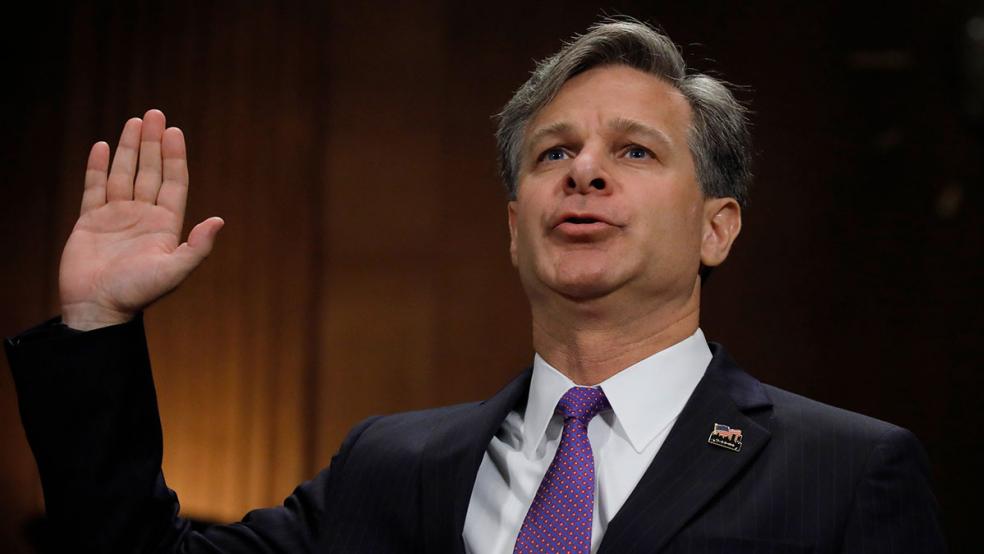There are moments in the current hothouse political environment when it’s instructive to step back and try to view events as though you’re a visitor from the not-so-distant past. Wednesday morning’s Senate confirmation hearing of President Trump’s nominee to head the Federal Bureau of Investigation, Christopher Wray, is one of them.
In the Trump era, we’ve become so accustomed to unexpected, even shocking, news coming at us quickly and from all directions that we’ve lost the capacity for surprise. In that context, the Wray hearing probably didn’t raise too many eyebrows.
Related: Donald Trump Jr. Is in the Fight of His Life. He’s Not Ready for It
For a moment, though, try to step back ten or twenty years and consider today’s circumstances from that perspective.
The nominee before the Judiciary Committee on Wednesday is a former federal prosecutor with a considerable record of achievement, including work on the Enron prosecution and the investigation of the 9/11 terror attacks. Christopher Wray rose to lead the Criminal Division of the Department of Justice and received the DOJ’s top award for leadership and public service.
In 2005, he moved on to a successful career in private practice with the firm King & Spalding and had been recognized by his peers as a preeminent figure in the world of Foreign Corrupt Practices Act Enforcement, and white collar criminal defense, known for honesty and personal integrity.
Juxtapose that kind of background with the following questions, some quoted directly, and some paraphrased, that Wray was asked when he appeared before the Senate Judiciary Committee on Wednesday:
Related: How to Decode the Meeting Between Trump Jr. and the Russian Lawyer
- “Do you agree that waterboarding is torture and illegal?”
- “There's been no question by anybody in the White House asking you for pledge of loyalty, is that correct?”
- “If the president asks you to do something unlawful or unethical, what do you say?”
- Is the ongoing FBI investigation into the ties between the Trump campaign and the Russian government a “witch hunt?”
- If the Russian government calls me up during an election and offers me disparaging information on my opponent gathered by the Kremlin, “should I take that meeting?”
To be fair, some of those questions have been asked, in one form or another, of previous nominees to senior positions in the Department of Justice. But it feels unique to the moment to have a nominee with a long record of achievement and reputation for upright behavior to face such a litany of questions about basic morality and fundamental ethics.
It’s not hard to imagine, in another time, a nominee taking personal offense at the fourth or fifth query about his or her personal integrity. A few centuries ago, it might have provoked a duel. In 2017, it’s standard operating procedure.





